A tent heater is a highly useful device specifically designed to provide optimal heat and comfort to individuals inside a tent, particularly in cold weather conditions. Whether you are embarking on a camping adventure or engaging in various outdoor activities, ensuring warmth and coziness in colder temperatures can be quite challenging. However, with the help of tent heaters, you can elevate your outdoor experience by staying comfortably warm and enjoying the beauty of nature to the fullest. These portable devices are ingeniously crafted to keep you snug and cozy, allowing you to create lasting memories while relishing the wonders of the great outdoors.
Types of Tent Heaters
There are various types of tent heaters available on the market, each with its unique features and specifications. The most common types of tent heaters include:
- Electric Tent Heaters – These heaters are powered by electricity and usually require a power source, such as a generator or electrical outlet, to function. They come in different sizes and shapes, from small personal-sized heaters to larger ones that can warm up a bigger tent.
- Propane Tent Heaters – These heaters use propane gas to generate heat and are considered the most popular type of tent heater due to their high heat output and portability. They are also relatively affordable compared to other types of heaters.
- Wood-Burning Tent Heaters – As the name suggests, these heaters burn wood for heat and are a great option for those who prefer a more natural and eco-friendly heating method. They do, however, require a good supply of dry wood to function efficiently.
- Infrared Tent Heaters – These heaters use infrared radiation to create heat, making them efficient and effective at warming up tents quickly. They also have the added benefit of not producing any harmful fumes or emissions.[3]
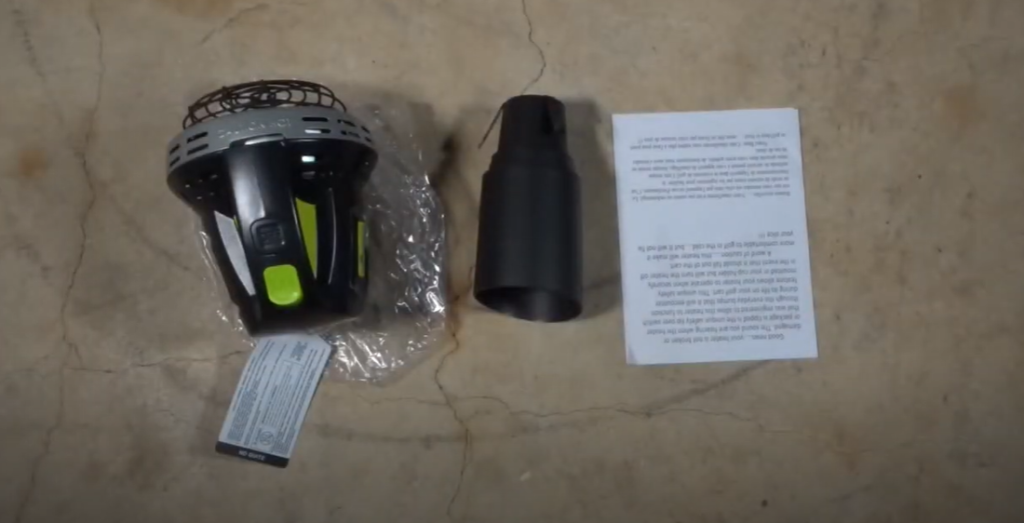
Potential Risks of Using Tent Heaters
While tent heaters can provide much-needed warmth and comfort during outdoor adventures, it is crucial to understand the potential risks associated with their use. Here are some important things to keep in mind when using a tent heater:
- Ventilation: Ensuring proper ventilation is of utmost importance when operating a tent heater, regardless of its type. Adequate airflow helps prevent the build-up of carbon monoxide, a colorless and odorless gas that can be extremely dangerous and even fatal if inhaled in high concentrations.
- Fire hazards: It is essential to place tent heaters at a safe distance from flammable materials, such as tents, sleeping bags, and clothing. Following the manufacturer’s instructions regarding the recommended distances for placement can significantly reduce the risk of accidental fires.
- Carbon monoxide detector: Investing in a reliable carbon monoxide detector is highly recommended when using a tent heater. This device will provide an early warning if dangerous levels of carbon monoxide are detected in the tent, allowing you to take immediate action to ensure your safety.
By being aware of these factors and taking necessary precautions, you can enjoy the warmth and comfort that tent heaters offer while minimizing the potential risks associated with their use. Stay safe and have a great outdoor adventure![3]
Safety Features in Modern Tent Heaters
As technology continues to advance, manufacturers have made significant improvements in the safety features of modern tent heaters. The latest models are equipped with a range of safety mechanisms to enhance user protection. These include automatic shut-off valves, which instantly cut off the fuel supply in case of emergency, tip-over switches that automatically turn off the heater if it is accidentally knocked over, and low-oxygen sensors that detect if the oxygen level in the tent is getting too low and prompt the heater to shut down.
With these advanced safety features, tent heaters provide not only warmth and comfort during outdoor adventures but also peace of mind, knowing that your well-being is prioritized.[3]
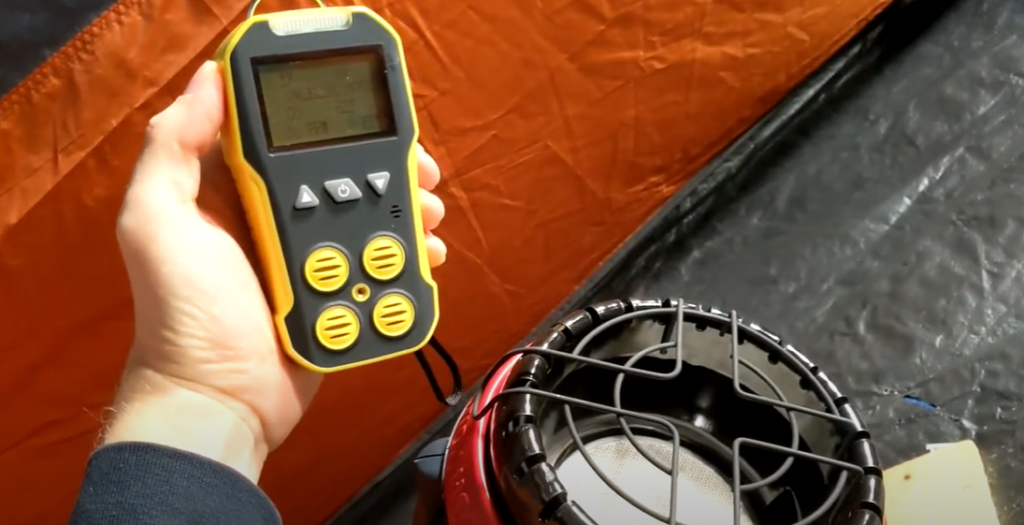
Proper Ventilation
Proper ventilation is absolutely crucial when using a tent heater. It not only helps maintain a safe level of oxygen inside the tent but also allows for the release of potentially harmful carbon monoxide fumes. Here are some important tips to ensure that you have adequate ventilation in your tent for a comfortable and safe camping experience:
- Always keep a door or window slightly open in your tent to allow fresh air to circulate effectively. This will ensure proper ventilation, which is vital for maintaining a comfortable and breathable environment inside.
- It is highly recommended to avoid using a tent heater in enclosed spaces, such as small tents or shelters. The limited space can lead to carbon monoxide buildup, posing a risk to your health. Opt for larger, well-ventilated tents whenever possible.
- For added peace of mind, consider using a carbon monoxide detector inside your tent. This will continuously monitor the air quality and promptly alert you to any potential hazards, allowing you to take immediate action.
- Regularly check and clean the exhaust vents of your propane or wood-burning heater. This will ensure that they are clear of any debris that could obstruct proper airflow and ventilation. Clear vents are essential for maintaining the efficiency and safety of your heater.[1]
By following these tips and using common sense, you can safely enjoy the warmth and comfort provided by a tent heater during your outdoor activities. Remember to always prioritize safety, be aware of potential risks, and have a fantastic time exploring the great outdoors!
Installation and Placement of Tent Heaters
Proper installation and placement of tent heaters are crucial for their safe and effective use. Here are some guidelines to follow:
- Before using a tent heater, it is important to carefully read and thoroughly understand the manufacturer’s instructions. Familiarize yourself with the safe operation procedures to ensure proper usage.
- When setting up your tent heater, it is essential to consider ventilation and airflow. Make sure there is ample space around the heater to allow for proper air circulation, minimizing the risk of carbon monoxide buildup.
- To ensure stability and safety, it is recommended to place the heater on a flat and stable surface. Keep it away from any flammable materials such as tents, sleeping bags, or clothing. Additionally, maintain a distance of at least three feet from walls or furniture to prevent any accidental contact.
- Never leave a tent heater unattended while in use. It is crucial to monitor the heater at all times to avoid any potential hazards. Always remember to turn off the heater before going to sleep or leaving the tent to minimize any risk of fire or carbon monoxide poisoning.[1]
By following these comprehensive guidelines, you can safely install and place your tent heater, providing a comfortable and enjoyable outdoor experience. Prioritizing safety ensures that you can stay warm and cozy while enjoying the great outdoors. Stay warm and stay safe!
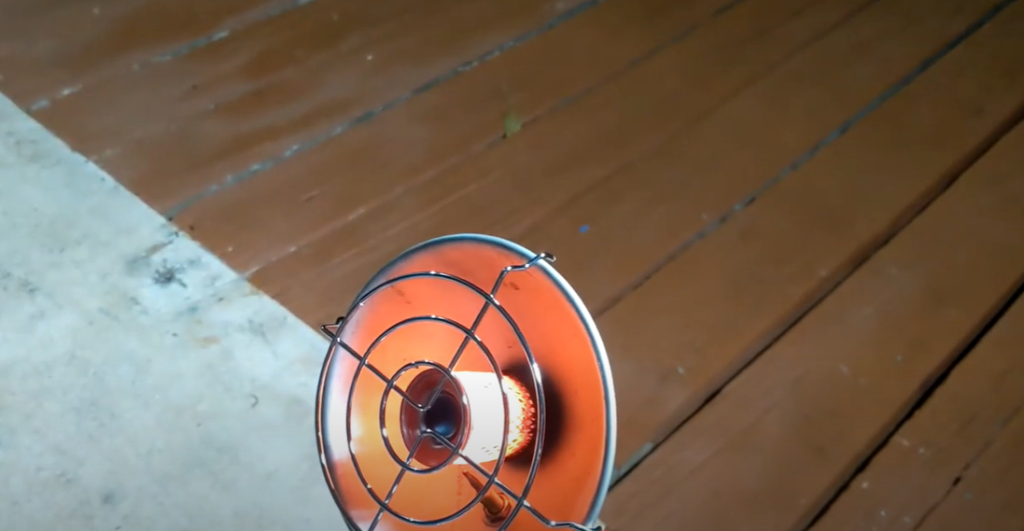
Carbon Monoxide Detectors
One of the most crucial safety measures when using a tent heater is to have a carbon monoxide detector installed in your tent. This device continuously monitors the air quality and alerts you if dangerous levels of this colorless and odorless gas are detected. Here are some key points to keep in mind regarding carbon monoxide detectors:
- It is crucial to prioritize the safety of your living space by investing in a reliable and high-quality carbon monoxide detector from a reputable brand. This will not only provide accurate readings but also ensure timely warnings in case of any potential threats.
- When positioning the detector, it is recommended to place it in close proximity to the heater. However, be cautious not to position it too close, as it may be affected by excessive heat or fumes. Some models are specifically designed for use near heaters and have the capability to withstand higher levels of heat and humidity, providing an added layer of protection.
- Regularly testing your carbon monoxide detector is a vital step in maintaining its functionality and effectiveness. By conducting periodic tests, you can be confident that the detector is working correctly and will respond promptly in the event of a carbon monoxide leak.
- In the unfortunate event that the alarm does go off, it is essential to take immediate action. Turn off the heater promptly and ensure proper ventilation of your living space by opening doors and windows. If anyone in the vicinity experiences symptoms such as dizziness, headache, or nausea, it is crucial to seek medical assistance without delay to ensure their well-being.[4]
By following these detailed precautions, you can create a safer environment and protect yourself and your loved ones from the potential dangers of carbon monoxide.
Tips for Safe Heater Use
While modern tent heaters come equipped with advanced safety features, it is essential to take additional precautions when using them to ensure a comfortable and secure outdoor experience. Here are some general tips to enhance your safety and enjoyment:
- Always have an ample supply of fuel on hand, as running out in the middle of the night can be both frustrating and uncomfortable. Make sure to calculate the duration of your outdoor trip and carry enough fuel to last throughout your stay.
- Regularly check your tent heater for any signs of damage or wear and tear. Inspect the fuel lines, connections, and components for any leaks or loose parts. If you notice any issues, do not use the heater until it is repaired or replaced. Safety should always be a top priority.
- Keep a fire extinguisher nearby in case of an emergency. Ensure that it is easily accessible and everyone in your camping group knows how to use it effectively. Additionally, have a clear plan in place for evacuation if needed, ensuring everyone is aware of the designated meeting point.
- Never use heaters that require electricity inside your tent. This can lead to electrical hazards and pose a significant risk to your safety. Instead, opt for portable heaters that are specifically designed for outdoor use and rely on alternative fuel sources.
- Finally, common sense goes a long way when using a tent heater. Always prioritize safety and be aware of potential risks and hazards. Ensure proper ventilation by leaving a small opening in your tent to allow fresh air circulation. Avoid placing flammable materials near the heater and never leave it unattended.[4]
By following these comprehensive guidelines, you can ensure that your outdoor adventures are warm, comfortable, and most importantly, safe!
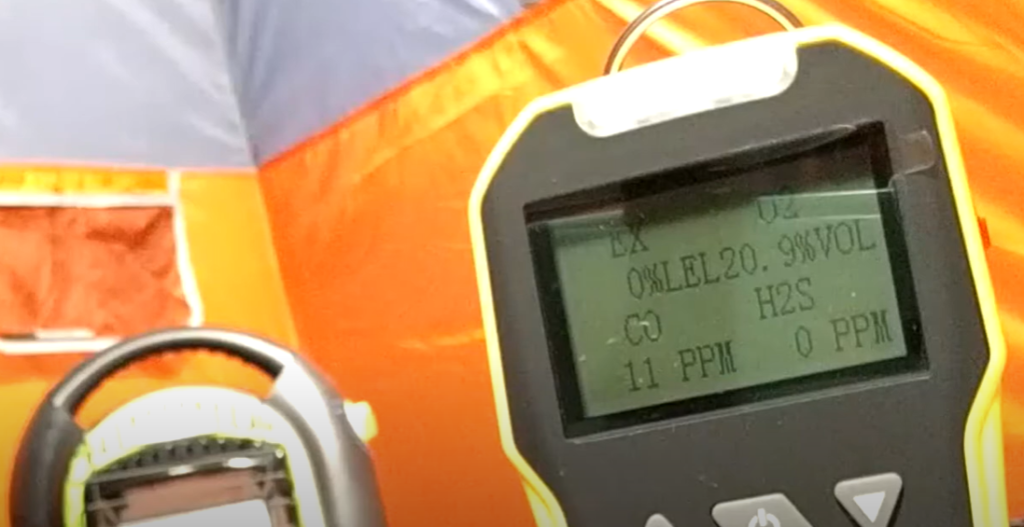
Regulations and Guidelines
While tent heaters are a convenient and efficient way to stay warm during outdoor activities, it is essential to adhere to regulations and guidelines set by the government or relevant authorities. These include restrictions on the use of certain types of heaters in specific areas, as well as safety precautions for camping in general.
In summary, tent heaters can be an excellent addition to your outdoor gear, providing warmth and comfort during chilly nights. However, it is crucial to prioritize safety when using them by following instructions carefully, taking necessary precautions, and being mindful of the environment. By doing so, you can fully enjoy your outdoor adventures while minimizing any potential risks or harm.[2]
Case Studies or Examples
To fully comprehend the significance of safety when using tent heaters, let’s delve into a real-life example. In the year 2019, a group of campers embarked on a memorable trip to Michigan, unaware of the tragic turn of events that awaited them. Amidst the serene landscape and calm wilderness, their lives were abruptly cut short due to carbon monoxide poisoning resulting from a malfunctioning heater nestled within the confines of their tent. This heart-wrenching incident serves as a stark reminder of the potential perils that arise from improper usage or the lack of necessary precautions when operating tent heaters.
Similarly, in the year 2017, a group of enthusiastic adventurers embarked on a thrilling camping escapade in the picturesque state of Oregon. Unbeknownst to them, their excitement and fervor were soon overshadowed by an unforeseen danger. As they sought warmth and comfort from a propane heater ensconced within their tent, little did they know that a silent threat loomed in the air. Carbon monoxide silently seeped into their temporary abode, poisoning the very air they breathed. Fortunately, swift medical attention and the diligent ventilation of their tent proved to be their saving grace. Though the incident left them shaken, they emerged with their lives intact, a testament to the critical importance of adhering to safety protocols and remaining vigilant of potential risks when utilizing tent heaters.
These heart-wrenching incidents, though tragic, serve as poignant reminders of the paramount significance of safety when operating tent heaters. They compel us to remain vigilant, prioritize precautionary measures, and ensure the well-being of ourselves and fellow adventurers in the great outdoors.[2]
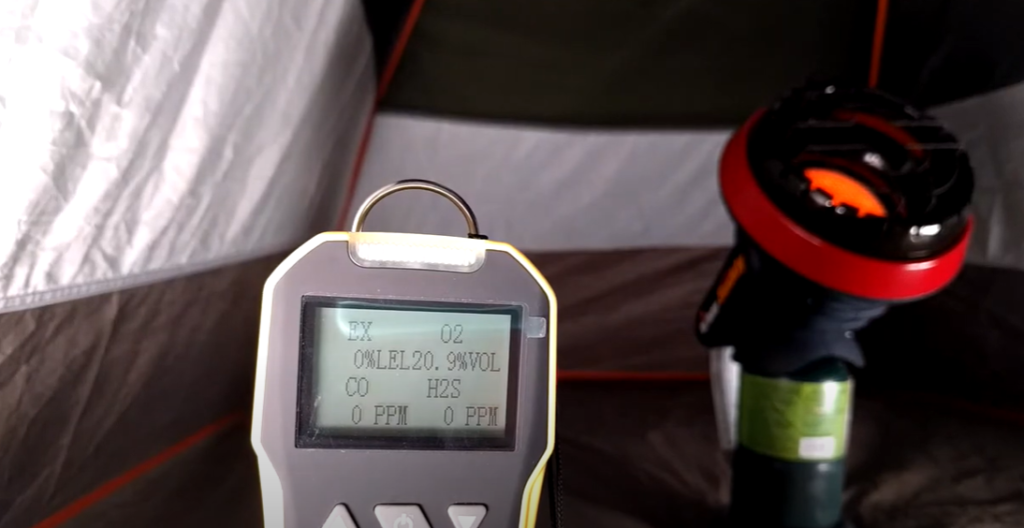
FAQ
Is it safe to use a camping heater indoors?
No, it is not safe to use a camping heater indoors. These heaters are designed for outdoor use and rely on alternative fuel sources, which can produce harmful gases such as carbon monoxide. Using them indoors can lead to dangerous levels of exposure and pose a significant risk to your safety.
Is it safe to have a buddy heater in a tent?
Yes, it is generally safe to have a buddy heater in a tent as long as safety precautions are taken. These include proper ventilation, regular maintenance checks, and never leaving the heater unattended. Additionally, always follow the manufacturer’s instructions for safe usage. However, it is important to note that some authorities may have regulations or restrictions on using certain types of heaters in specific areas. Always research and adhere to these guidelines to ensure a safe experience for everyone.
Can you use a heater in an air tent?
Yes, you can use a heater in an air tent. However, it is important to follow safety precautions and guidelines set by the manufacturer and relevant authorities. This includes proper ventilation, regular maintenance checks, and never leaving the heater unattended. It is also essential to research any rules or regulations that may apply to your camping location before using a heater in an air tent.
Can you leave a tent heater on all night?
No, it is not recommended to leave a tent heater on all night. It is important to follow the manufacturer’s instructions and safety guidelines for usage, which typically include turning off the heater when unattended or before going to sleep. This reduces the risk of accidents or harm from prolonged exposure to heat and gas emissions from the heater. Additionally, always ensure proper ventilation in your tent for fresh air circulation. Ultimately, it is crucial to prioritize safety and take necessary precautions when using a tent heater during your outdoor adventures.
What is a safe heater for a tent?
A safe heater for a tent is one that adheres to proper safety standards and guidelines, including proper ventilation, regular maintenance checks, and not leaving the heater unattended. Additionally, it should be suitable for outdoor use and produce minimal emissions of harmful gases such as carbon monoxide. Conduct thorough research and choose a reliable and certified heater from a reputable manufacturer to ensure maximum safety during your camping trips. Remember, safety should always be a top priority when using any equipment in the great outdoors.
How do you make a tent heater safe?
To make a tent heater safe, follow these tips:
- Choose a certified and reliable heater from a reputable manufacturer.
- Always read and follow the manufacturer’s instructions for usage carefully.
- Ensure proper ventilation in your tent by opening windows or vents to allow fresh air circulation.
- Regularly check and maintain your heater to ensure it is functioning correctly.
- Never leave the heater unattended and always turn it off before sleeping or leaving your tent.
- Research any rules or regulations that may apply to your camping location and adhere to them.
How do you heat a party tent safely?
To heat a party tent safely, follow these tips:
- Use a heater specifically designed for outdoor use and suitable for the size of your party tent.
- Properly position the heater away from any flammable materials or surfaces.
- Ensure proper ventilation in the tent by opening windows or vents to allow fresh air circulation.
- Regularly check and maintain the heater to ensure it is functioning correctly.
- Never leave the heater unattended and always turn it off before leaving or sleeping in the tent.
- Consider using alternative heating methods such as electric heaters instead of fuel-based ones, depending on your location and resources.
Useful Video: Are Tent Heaters Safe?
Conclusion
In conclusion, while tent heaters can provide much-needed warmth and comfort during outdoor adventures, it is crucial to prioritize safety and adhere to proper usage guidelines. Always choose a certified and reliable heater from a reputable manufacturer, ensure proper ventilation, and never leave the heater unattended. Additionally, research any rules or regulations that may apply to your camping location before using a heater in your tent. By taking necessary precautions and remaining vigilant, you can enjoy a safe and cozy camping experience with your trusty tent heater by your side. Stay warm and stay safe! So, next time someone asks “are tent heaters safe?” You can confidently say yes, as long as proper safety measures are taken. Happy camping!
References:
- https://wildernessredefined.com/can-you-put-a-heater-in-a-tent/
- https://www.advnture.com/features/are-tent-heaters-safe
- https://decideoutside.com/heaters-in-a-tent-what-is-safe-and-what-is-deadly/
- https://www.outsideonline.com/outdoor-gear/camping/how-to-safely-heat-a-tent/


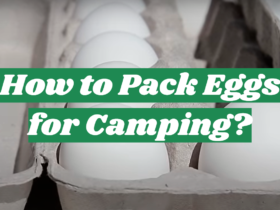


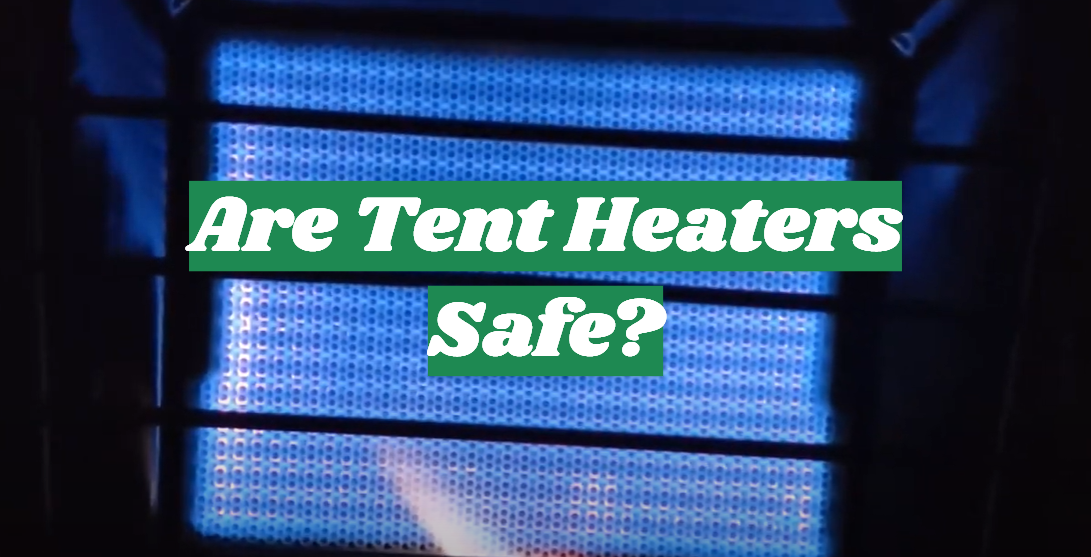
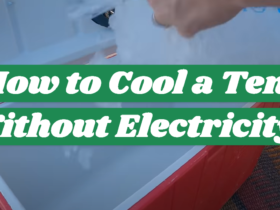
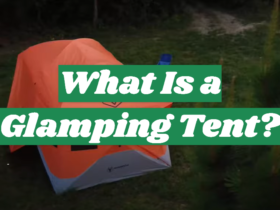
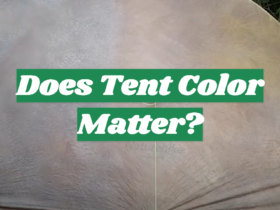
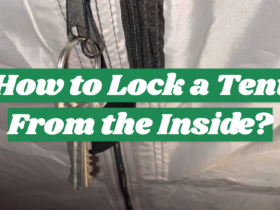
Leave a Review